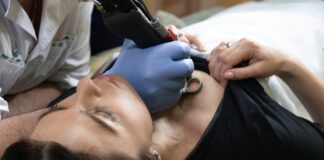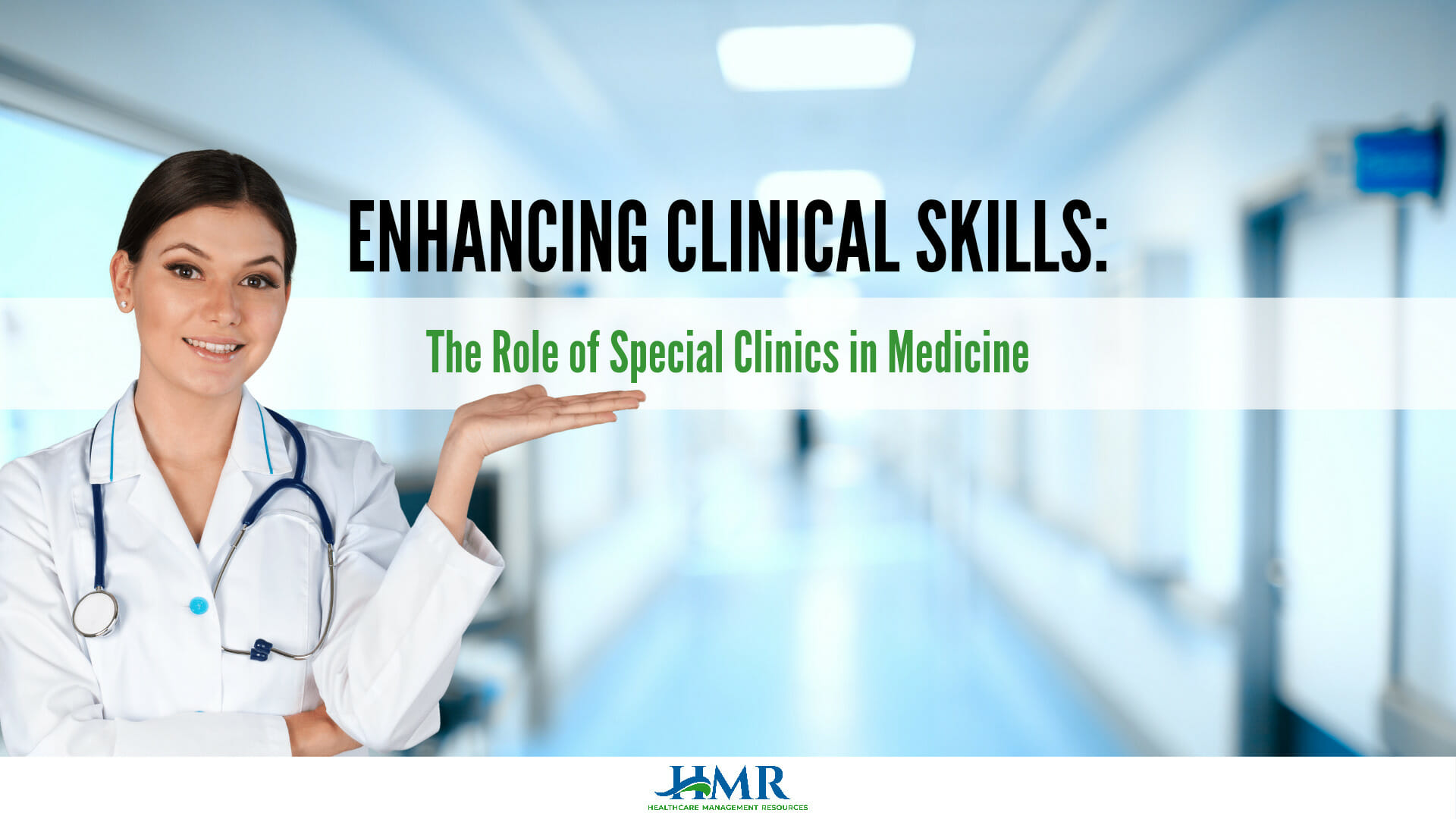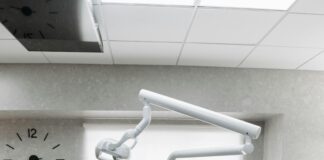Are you tired of trying countless diets and exercises without seeing real results? Welcome to the ultimate weight loss clinic designed to transform your life forever! Losing weight can be a challenging journey, but with the right guidance and support, it’s totally achievable. Have you ever wondered what makes a professional weight loss program different from fad diets? Our clinic offers scientifically proven methods that target fat loss effectively and safely. Imagine shedding those extra pounds while improving your overall health and confidence. Isn’t it time to discover the secret behind successful medical weight loss treatments that celebrities and fitness experts swear by?
Many people struggle with stubborn fat despite their best efforts, but our expert team understands the unique needs of every individual. We combine personalized meal plans, cutting-edge technologies, and ongoing motivation to ensure lasting results. What if you could finally say goodbye to yo-yo dieting and hello to a healthier, happier you? Our weight loss clinic near me uses innovative solutions like hormone therapy, nutritional counseling, and customized workout routines tailored just for you. Don’t wait any longer — take the first step towards your dream body today and unlock the power of professional help at a trusted weight loss center!
Discover the Top 7 Weight Loss Clinic Secrets to Transform Your Body Fast
Why You Might Wanna Think Twice About Choosing a Weight Loss Clinic (Or Maybe Not)
Alright, so you been hearing a lot about these weight loss clinic thingies lately. Maybe you want to drop some pounds, feel better, or just stop looking like a stuffed sausage in your jeans. Whatever the reason, weight loss clinics are popping up everywhere like mushrooms after rain. But, hey, not everything that glitters is gold, right? So, let’s dig into this whole weight loss clinic biz and see if it’s really worth your hard-earned cash or just another fad.
What Exactly is a Weight Loss Clinic?
In simplest terms, a weight loss clinic is a place where professionals help you lose weight. Duh. But the thing is, these clinics offer a bunch of services – diet plans, exercise routines, medical treatments, even some fancy tech stuff. Sometimes they even throw in counseling so you dont feel like you are doing this alone.
But, here’s a thing that might confuse you: each clinic have different approaches. Some focus on natural weight loss, others more on supplements or even surgeries. So, you gotta really check what kind of clinic fits your vibe.
Pros and Cons of Weight Loss Clinics (Because Nothing’s Perfect)
| Pros | Cons |
|---|---|
| Personalized diet plans | Can be pretty expensive |
| Professional support | Not all clinics are legit |
| Access to medical treatments | Sometimes results are slow |
| Motivation from group sessions | You might feel pressured |
Not really sure why this matters, but it’s kinda important to think about both sides before you jump into something. For instance, that personalized diet plan sounds great until you realize you hate eating kale every day. True story.
What To Look For In A Good Weight Loss Clinic
Ok, so imagine you decided to give these clinics a shot. How do you not get ripped off or end up in some shady place? Here’s a quick checklist to keep in mind:
- Certified health professionals (doctors, dietitians, etc.)
- Transparent pricing (no hidden fees, please)
- Customizable plans (because one size definitely does NOT fit all)
- Good reviews or testimonials (people don’t lie, mostly)
- Realistic promises (no “lose 20 pounds in a week” nonsense)
Maybe it’s just me, but I feel like sometimes clinics try to sell you big dreams that are too good to be true. So, keep your skeptical hat on!
Different Types of Weight Loss Clinics – Which One Fits Your Style?
| Clinic Type | Description | Best For |
|---|---|---|
| Medical Clinics | Doctor-led, sometimes with prescription meds | People with health issues |
| Nutritional Clinics | Focus on diet and supplements | Those wanting natural methods |
| Fitness Clinics | Exercise-focused with trainers | Active people who need guidance |
| Surgical Clinics | Offer bariatric surgeries like gastric bypass | Severe obesity cases |
If you ask me, I’d probably start with nutritional or fitness clinics unless you have some serious health problems. Surgery? Nah, that’s a whole different ball game and kinda scary.
Real Talk: What They Don’t Tell You About Weight Loss Clinics
Now, here comes the less rosy part. Weight loss is hard, no matter what clinic you go to. Some clinics give you hope, but then results come slow. You might have to change your entire lifestyle and that ain’t easy. Also, sometimes the “support” feels like pressure, and you might feel guilty if you can’t keep up.
Oh, and not to rain on anyone’s parade, but there’s no magic pill. Clinics might push supplements or diets that sound cool but don’t work for everyone.
Quick Tips To Maximize Your Weight Loss Clinic Experience
- Be honest with your health history and habits.
- Follow the plan but also listen to your body.
- Don’t be afraid to ask questions (lots of them).
- Keep a journal of your progress (helps to see what’s working).
- Stay patient – weight loss takes time (I know, no one likes waiting).
Final Thoughts: Should You Go To A Weight Loss Clinic?
Honestly, if you are super serious about losing weight, a weight loss clinic can be a good place to start. Having experts and a plan tailored to you is better than trying random diets from the internet. But don’t expect miracles overnight and definitely don’t spend beyond your means.
Remember, not every clinic is created equal. Do your homework, read reviews, and trust your gut. If something sounds too good to be true, it probably is. And hey, sometimes just getting out for a walk and eating your veggies works wonders too — no fancy clinic required.
So, what
How Weight Loss Clinics Use Proven Strategies for Rapid and Lasting Results
Thinking about dropping some pounds? Well, you might have heard about those weight loss clinic places popping up everywhere, right? I mean, why not get some professional help when you are struggling with those stubborn kilos that just won’t go away? But, honestly, sometimes it feel like these clinics are just another way to empty your wallet. Here’s the thing, not really sure why this matters, but choosing the right weight loss clinic near me could make or break your whole experience.
Let’s dive deep, or at least try, into what a typical best weight loss clinic offers, and maybe you can figure out if it’s for you or nah.
What Does a Weight Loss Clinic Actually Do?
You might think it’s just about telling you to eat less and move more, but no, some of them go way beyond. Here’s a quick rundown of services a weight loss clinic program usually include:
| Service Offered | What You Can Expect |
|---|---|
| Personalized Diet Plans | Tailored meal plans that fits your lifestyle and taste buds |
| Medical Supervision | Doctor oversight to make sure you don’t drop dead (kidding!) |
| Exercise Coaching | Workouts designed for you, not just a random YouTube video |
| Behavioral Therapy | Help with emotional eating and habits that sabotage weight loss |
| Supplements & Medications | Sometimes prescribed to boost metabolism or curb appetite |
Some clinics even offer fancy stuff like body composition analysis or hormone testing. Maybe it’s just me, but I feel like that sounds a bit over the top. Then again, if you got the cash, why not?
Quick Pros and Cons of Using a Weight Loss Clinic
| Pros | Cons |
|---|---|
| Professional guidance and support | Can be pretty pricey, sometimes super expensive |
| Customized plans that may work better | Not all clinics are created equal, some might scam you |
| Accountability keeps you on track | You might become dependent on the clinic rather than learning yourself |
| Access to medical supervision | The results can vary big time, no guarantees here |
How To Pick The Right Weight Loss Clinic?
This part is tricky. You don’t just want to pick any random place just because they have a fancy website or lots of Instagram followers (spoiler alert: that doesn’t mean squat). Here are some tips to consider before jumping in:
- Check Credentials: Make sure the clinic has qualified nutritionists, dietitians, or doctors. You don’t want to trust your health with someone who learned all their knowledge from a blog.
- Read Reviews: Look for real people’s experiences. But beware of fake testimonials, they are everywhere.
- Ask About The Approach: Some clinics focus heavily on supplements or quick fixes — a big red flag if you ask me.
- Consider Your Budget: Weight loss clinics can cost a lot, so be realistic about what you can afford without going broke.
- Trial Sessions: Some places offer free consultations or trial plans. Use those to get a vibe of the place.
Real Talk: Is A Weight Loss Clinic Worth It?
Honestly, it depends. If you are the kind of person who needs external motivation, professional guidance and maybe a little tough love, then a weight loss clinic near me could be a game changer. On the other hand, if you just want a quick fix or think that the clinic will do all the work for you, you’re in for disappointment.
A Simple Comparison Table: DIY vs Weight Loss Clinic
| Factor | DIY Weight Loss | Weight Loss Clinic |
|---|---|---|
| Cost | Mostly free or cheap | Can be expensive |
| Guidance | Mostly self-taught or online | Professional and personalized |
| Accountability | Low, easy to slack off | High, with scheduled check-ins |
| Flexibility | Completely flexible | Structured program, less flexibility |
| Results | Varies widely | Generally more consistent |
Not really sure why this matters, but people often forget that weight loss is not just physical, it’s mental too. The support system in a weight loss clinic program can sometimes help you deal with your emotional ups and downs better than trying to figure it all out alone.
A Few Practical Tips Before You Go
- Don’t expect miracles overnight. If any clinic promises you will lose 10 pounds in a week, RUN.
- Ask about follow-up support. Losing weight is one thing, keeping it off is another beast.
- Be honest about your medical history and lifestyle. The more info they got, the better they can help.
- Look for clinics that promote healthy habits, not just calorie counting or starvation.
Why Choosing the Right Weight Loss Clinic Can Skyrocket Your Fat-Burning Journey
Thinking about dropping some pounds and maybe checking out a weight loss clinic near me? Well, you’re not alone, buddy! Tons of folks are trying to figure out how to lose weight without giving up their favorite foods or spending hours at the gym (who really wants that?). But, finding the right weight loss clinic program can be like searching for a needle in haystack, seriously.
What is a Weight Loss Clinic, Anyway?
In simple words, a weight loss clinic is a place where professionals help you shed those extra kilos with plans that suits you (not one-size-fits-all, thank goodness!). They usually got dietitians, trainers, sometimes even doctors, who work together to fix your weight issues. But, here’s the kicker — not all clinics are created equal, and some might just be a waste of time and money.
| Pros of Weight Loss Clinics | Cons of Weight Loss Clinics |
|---|---|
| Personalized plans just for you | Can be expensive, like really pricey |
| Support from professionals and peers | Sometimes results take ages to show |
| Access to medical advice and testing | Some clinics push supplements too hard |
Maybe it’s just me, but I feel like the idea of having an actual person check on your progress beats googling “best diets” any day.
Types of Weight Loss Clinics You Might Find
- Medical weight loss clinics: These usually involve doctors and sometimes medicine or surgery. Not for the faint-hearted but might be necessary for some.
- Nutrition-focused clinics: Mainly dietitians and nutritionists creating meal plans.
- Fitness-oriented clinics: Focused more on exercise programs.
- Holistic or wellness clinics: Mix of diet, exercise, and mental health support.
Not really sure why this matters, but choosing the right type can make or break your journey.
What to Expect When You Visit a Weight Loss Clinic Near You
When you step into a weight loss clinic near me, expect some basic steps like:
- Initial Assessment: They’ll check your weight, BMI, maybe blood work too.
- Goal Setting: You talk about what you want to achieve.
- Personalized Plan: Diet, exercise, sometimes meds or supplements.
- Follow-Up Sessions: To monitor progress and tweak the plan.
Oh, and don’t be surprised if they ask about your sleep and stress levels, cause apparently that affects weight (who knew?).
Why Some People Fail at Weight Loss Clinics
It’s not always the clinic’s fault when people don’t lose weight. Sometimes, it’s the unrealistic expectations or the lack of commitment. Here’s a little list of common pitfalls:
- Expecting instant results (spoiler: it doesn’t work like magic).
- Skipping sessions or ignoring the plan.
- Falling for fad diets promised by other sources.
- Not being honest with the professionals.
If you’re reading this and thinking, “Well, I did all that and still no results!” then maybe the plan was off or you need a different clinic.
Sample Weekly Meal Plan From a Nutrition-Focused Weight Loss Clinic
| Day | Breakfast | Lunch | Dinner | Snack |
|---|---|---|---|---|
| Monday | Oatmeal with berries | Grilled chicken salad | Baked salmon with veggies | Greek yogurt |
| Tuesday | Smoothie with spinach | Turkey sandwich on whole grain | Stir-fried tofu and rice | Almonds |
| Wednesday | Scrambled eggs and toast | Quinoa and chickpea salad | Lean beef stew | Carrot sticks |
Looks easy, right? But honestly, sticking to it when you crave pizza is a whole different story.
Is a Weight Loss Clinic Worth It?
The million-dollar question. Well, if you’re someone who has tried every diet out there and still stuck, a weight loss clinic program might be your best bet. They offer structure, accountability, and expert advice that you can’t just get from a random blog post. But if you’re on a tight budget or don’t really want to change your lifestyle, maybe just try some free apps or community groups first.
Tips To Get The Most Out Of Your Weight Loss Clinic Experience
- Be honest with your provider, even about the junk food binges.
- Set realistic goals — don’t aim to lose 20 pounds in a week, please.
- Follow the plan but don’t be afraid to ask questions or suggest tweaks.
- Keep a journal or use an app to track your meals and workouts.
- Remember, weight loss is a marathon, not a sprint.
Final Thoughts — Should You Try a Weight Loss Clinic?
If you asked me, I’d say give it a shot if you
The Ultimate Guide to Weight Loss Clinic Programs That Deliver Fast Body Transformation
Thinking About a Weight Loss Clinic? Here’s What You Might Wants to Know
Losing weight is a journey, and sometimes it feels like you trying to find the holy grail of diets or exercise plans. That’s where a weight loss clinic comes into the picture. But, not really sure why this matters, some people thinks that these clinics are just a gimmick or expensive shortcuts. Well, maybe it’s just me, but I feel like a good weight loss clinic can actually provide the kind of support and guidance that you rarely find elsewhere.
So, what exactly is a weight loss clinic? In simple words, it’s a place where professionals help you drop those extra pounds through a mix of diet plans, exercise routines, and sometimes medical treatments. They don’t just throw you on a treadmill and say “good luck!” No, they take a more holistic approach.
What Services Do Weight Loss Clinics Usually Offer?
| Service Type | Description | Why It Might Be Helpful |
|---|---|---|
| Nutritional Counseling | Personalized diet plans based on your needs | Helps you understand what to eat and why |
| Medical Supervision | Doctors monitor your health during weight loss | Ensures safety, especially if you have health issues |
| Physical Activity Plans | Custom exercise programs | Keeps you active without overdoing it |
| Behavioral Therapy | Support to change your eating habits | Addresses emotional or psychological factors |
Not every clinic offers all these, but a good one will have at least a few.
Why Choose a Weight Loss Clinic Over DIY Diets?
You could always try to lose weight on your own, googling recipes and workouts. But honestly, how many times you start a diet only to quit after a week? Yeah, exactly. Weight loss clinics offer accountability, which is something a YouTube video or an app just can’t provide. Plus, they tailor the plan to your body type, lifestyle, and even medical background.
One thing that I find kinda funny is people sometimes fear these clinics because they think it’s all about starvation or crazy pills. Spoiler alert: most clinics nowadays focus on balanced nutrition and safe practices. But hey, if you’re looking for a quick fix, then maybe a clinic is not your vibe.
Important Factors to Look for in a Weight Loss Clinic
Before you jump in, here’s a quick checklist you might wants to keep in mind:
- Qualified Staff: Doctors, dietitians, trainers who actually know their stuff
- Personalized Plans: Because one size rarely fits all
- Support System: Group sessions or counseling options
- Transparent Pricing: No hidden fees or upsells
- Long-Term Focus: Clinics that teach sustainable habits, not just quick fixes
Sample Weekly Plan From a Typical Weight Loss Clinic
| Day | Breakfast | Lunch | Dinner | Activity |
|---|---|---|---|---|
| Monday | Oatmeal with fruits | Grilled chicken salad | Steamed fish with veggies | 30 mins brisk walk |
| Tuesday | Yogurt and nuts | Quinoa and veggies | Turkey stir-fry | 45 mins light cardio |
| Wednesday | Smoothie bowl | Lentil soup | Grilled tofu | Yoga or stretching |
| Thursday | Whole grain toast | Chicken wrap | Salad and soup | Strength training |
| Friday | Eggs and avocado | Fish tacos | Veggie pasta | Swimming or cycling |
| Saturday | Pancakes (healthy) | Salad with beans | Grilled steak | Rest or light activity |
| Sunday | Fruit salad | Leftovers | Soup and bread | Meditation and walking |
Not saying you have to follow this exactly, but it gives you an idea how clinics structure meals and activities to keep things balanced.
Pros and Cons of Using a Weight Loss Clinic
| Pros | Cons |
|---|---|
| Professional guidance | Can be expensive |
| Customized programs | Might require regular visits |
| Support and motivation | Some clinics push products too hard |
| Medical supervision (if needed) | Not a magic solution, requires effort |
Honestly, if you’re looking for a “lose 10 pounds in 3 days” kind of thing, then no clinic can help you – and no sane person should try that anyway.
Final Thoughts: Is a Weight Loss Clinic Worth It?
If you ask me, a weight loss clinic is like hiring a personal coach for your health. Sure, you can run on your own but having someone cheering you on, correcting your form, and making sure you don’t injure yourself is priceless. The key is to find a place that matches your personality and goals because what works for your
5 Little-Known Weight Loss Clinic Techniques That Accelerate Your Metabolism
So you’re thinkin about hitting up a weight loss clinic, huh? Well, you’re not alone. More and more people these days look for some kinda professional help to shed them pounds, because let’s be honest, losing weight by yourself can be a nightmare. But here’s the thing — not all clinics are created equal, and sometimes it all just feels like a big guessing game. So, I decided to put together some thoughts, tips, and a little reality check on what to expect when you step into a weight loss clinic near me or anywhere else.
Why Choose a Weight Loss Clinic Anyway?
Okay, first things first. You might wonder, why even bother with a medical weight loss clinic when you can just diet and exercise at home? Good question.
- Some people need that extra push or guidance because they have underlying health issues.
- Others want a structured plan that isn’t just “eat less, move more” — because that advice is, honestly, kinda vague.
- Plus, many clinics offer personalized programs, which means they tailor stuff to your body’s needs.
Not really sure why this matters, but did you know some weight loss clinics also offer psychological support? Yeah, it’s not just about the scale — your mindset plays a big role too.
What Services Do Weight Loss Clinics Usually Offer?
Here’s a quick table to help you figure out what’s on the menu at most clinics:
| Service | Description | Typical Cost Range |
|---|---|---|
| Nutritional Counseling | Diet plans designed by experts | $50 – $150/session |
| Medical Evaluations | Blood tests, metabolic rate checks, etc. | $100 – $300 |
| Prescription Medications | FDA-approved weight loss drugs | Varies |
| Behavioral Therapy | Helps with emotional eating and habits | $75 – $200/session |
| Exercise Programs | Customized workouts based on your health | $40 – $100/session |
| Surgical Options | For severe cases (e.g., bariatric surgery) | $5,000+ |
Maybe it’s just me, but I always found the cost a bit intimidating. But hey, investing in your health could be worth it, right?
How to Choose the Right Weight Loss Clinic for You?
Not all clinics will fit your needs, so here’s a little checklist you might wanna use before signing up:
- Do they have certified nutritionists and doctors? Because, seriously, you don’t want some random person giving you advice.
- Check for reviews online. People love to share their horror stories, and also the good stuff.
- Ask about the program’s flexibility. Life happens, and a rigid plan often doesn’t work.
- Do they offer follow-up support? Losing weight is one thing, keeping it off is a whole different ball game.
The Real Talk: What You Might NOT Like About Weight Loss Clinics
Alright, now let’s get real for a second. Weight loss clinics can be fantastic, but they aren’t magic. You might face some frustrations like:
- Feeling judged or rushed during appointments.
- Programs that cost an arm and a leg.
- Sometimes, the “personalized” plan feels kinda cookie-cutter.
- Progress can be slower than you expect, and that’s annoying.
Honestly, losing weight is a marathon, not a sprint — but who wants to hear that when you’re staring at a cupcake?
Some Practical Tips if You Decide to Go
If you’re seriously thinking about visiting a best weight loss clinic, here are some tips that might save you some headache:
- Write down your goals clearly before you start.
- Keep a food diary, even if they don’t ask you to.
- Don’t be afraid to ask questions, even if they sound silly.
- Stay consistent, but don’t beat yourself up over slip-ups.
- Use technology — apps and gadgets can help track your progress.
Quick Comparison: Weight Loss Clinic vs DIY Weight Loss
| Aspect | Weight Loss Clinic | DIY Weight Loss |
|---|---|---|
| Professional Support | Yes, often with doctors and dietitians | Mostly no, except online forums |
| Cost | Can be expensive | Usually free or low cost |
| Customization | High, personalized plans | Low, mostly generic advice |
| Accountability | Scheduled appointments keep you on track | Depends on your self-discipline |
| Psychological Support | Often included | Rarely, unless you seek it elsewhere |
Final Thoughts… or Whatever
So, at the end of the day, whether you go to a weight loss clinic near me or just try to figure it out yourself, it’s about finding what works for
How Personalized Plans at Weight Loss Clinics Boost Your Fat Loss Effortively
So, you’re thinking about visiting a weight loss clinic near me? Well, you’re not alone, that’s for sure. Tons of people these days is looking for some extra help to shed those stubborn pounds that just won’t budge no matter what. But hey, it’s not always rainbows and sunshine in the world of weight loss clinics, and sometimes it can be a bit confusing too. I mean, how do you even pick the right one with all those options out there?
What is a Weight Loss Clinic Anyway?
In case you’re wondering (not really sure why this matters, but here it goes), a weight loss clinic is a specialized center where people go to get professional help for losing weight. They don’t just throw you on a treadmill and tell you to run till you drop. Nope, these clinics usually offer a whole bunch of programs, from diet plans, exercise routines, to sometimes even medical treatments.
| Service Type | Description | Typical Clients |
|---|---|---|
| Diet Consultation | Personalized meal plans | Those who struggle with eating habits |
| Medical Evaluation | Health checks and weight-related tests | People with obesity-related issues |
| Exercise Programs | Customized workouts | Fitness beginners or enthusiasts |
| Behavioral Therapy | Counseling for emotional eating | People battling food cravings |
Why Choose a weight loss clinic in [your city]?
There’s no shortage of weight loss advice on the internet, but sometimes it just ain’t enough. You might think, “I can do this on my own,” and honestly, you can — but having that extra support can be a game changer. Maybe it’s just me, but I feel like when someone else is watching you (in a non-creepy way, of course), you tend to stick to the plan better.
Benefits of Going to a Weight Loss Clinic
- Access to professionals who actually knows what they’re doing (not your cousin’s latest diet fad)
- Structured plans that fit your lifestyle (hopefully)
- Medical supervision if needed, cause losing weight isn’t always safe for everyone
- Motivation from a community or support group (sometimes feels like a mini cheer squad)
Things to Look for When Picking a Clinic
Okay, so you’re convinced that a best weight loss clinic for women or men might be the way to go. But how to pick? Here’s a quick checklist — because who doesn’t love a checklist, right?
- Credentials: Are the staff licensed nutritionists, doctors, or trainers? Or just some random person with a fancy title?
- Programs: Do they offer plans that fit your health needs or do they just push one-size-fits-all diets?
- Reviews: What are other people saying? (But beware, some reviews is fake, so read enough of them)
- Cost: Can you afford it without selling your kidney? (Weight loss shouldn’t bankrupt ya)
- Location & Hours: Is it close enough to not become a hassle to visit regularly?
A Sample Weekly Plan from a Typical Weight Loss Clinic
| Day | Activity | Notes |
|---|---|---|
| Monday | Nutrition consultation | Bring food diary |
| Tuesday | Group workout session | Wear comfy clothes |
| Wednesday | Behavioral therapy | Be honest with your counselor |
| Thursday | Cooking class | Learn healthy recipes |
| Friday | Weigh-in and progress check | Don’t panic if no big change |
| Saturday | Outdoor activity | Hiking, biking, or walking |
| Sunday | Rest day | Relax, you earned it! |
The Not-So-Glamorous Side of Weight Loss Clinics
Look, I’m not gonna sugarcoat everything. Sometimes, these clinics can be a little pushy with selling supplements or fancy shakes that cost an arm and a leg. And not everyone gets the same results — some people lose weight fast, others struggle forever. Plus, sometimes they might make you feel guilty if you “fall off the wagon.” Not great for motivation, if you ask me.
And here’s the kicker: some places promise quick fixes that just ain’t realistic. So if a clinic says “Lose 20 pounds in 2 weeks!!!” run the other way. Like, seriously, your body needs time to adjust.
Quick Tips Before You Dive In
- Always consult your doctor before starting any intense weight loss program.
- Don’t be afraid to ask questions about the program details.
- Make sure the clinic supports long-term lifestyle changes, not just quick fixes.
- Track your progress, but don’t obsess over every pound.
Final Thoughts on Weight Loss Clinics
So, is a weight loss clinic for obesity worth it? It kinda depends
Weight Loss Clinic Success Stories: Real People, Real Fast Body Transformations
So, you’re thinking about hitting up a weight loss clinic? Well, let me tell you, it’s not always as simple as just eating salad and jogging every morning. I mean, sure, losing weight sounds like a piece of cake (pun intended), but the reality is often messier than that. Maybe it’s just me, but I feel like people underestimate how much those clinics actually do for you.
What is a Weight Loss Clinic, Anyway?
A weight loss clinic is basically a specialized place where experts help you lose those pesky pounds, but its way more than just diet plans. They offer medical supervision, personalized counseling, and sometimes even fancy treatments like fat freezing or hormone therapy. Not really sure why this matters, but some clinics even have psychologists because apparently, losing weight is as much about your brain as your belly.
| Service Offered | Description | Who should consider it? |
|---|---|---|
| Nutritional Counseling | Personalized diet plans, meal suggestions | People who struggle with food choices |
| Medical Supervision | Monitoring health during weight loss | Those with underlying health issues |
| Physical Activity Plans | Custom exercise routines | Beginners or those with injuries |
| Behavioral Therapy | Addressing emotional eating | Anyone dealing with stress and food |
| Advanced Treatments | Lipolysis, hormone therapy, etc. | People wanting quicker results |
Why People Choose a Weight Loss Clinic?
Honestly, some folks go there because they tried everything else and still can’t lose weight. Like, you’d think eating less and moving more is the magic formula, but nope — it’s not that straightforward. The clinics offer accountability, which is like that annoying friend reminding you not to eat that donut, but way more professional.
Long tail keywords:
- best weight loss clinic near me
- affordable weight loss clinic programs
- medically supervised weight loss clinic
I asked a friend once why she went to a clinic instead of just dieting on her own, she said, “Because I need someone to yell at me for skipping the gym.” Fair enough.
Common Myths About Weight Loss Clinics
- They are only for really overweight people (false, even if you’re just a little chubby, clinics can help).
- You’ll lose weight overnight (nope, slow and steady wins the race).
- It’s crazy expensive (depends, but many offer affordable plans).
- You have to do surgery (not always, lots of non-invasive options exist).
How to Choose The Right Weight Loss Clinic for You?
Here’s a little checklist I made, because honestly, I was lost at first too:
- Check Credentials: Are the staff doctors, dietitians, or fitness experts? If no, run.
- Look for Reviews: What do other patients say? Real talk, some clinics look good on paper but are a nightmare.
- Assess Programs Offered: Do they have a program that fits your needs? Don’t pick the one that looks fancy but doesn’t suit your lifestyle.
- Cost and Insurance: Will insurance cover any part? If not, is the price worth it?
- Location and Accessibility: Not so fun to travel 2 hours for a weekly appointment.
Example: Sample Weekly Schedule at a Weight Loss Clinic
| Day | Activity | Notes |
|---|---|---|
| Monday | Initial assessment & consultation | Bring medical records if you have any |
| Tuesday | Nutritional counseling session | Prepare questions about your diet |
| Wednesday | Light physical activity session | Includes stretching and walking |
| Thursday | Behavioral therapy group | Talk about emotional eating |
| Friday | Check-in & progress measurement | Weigh-in and discuss challenges |
What to Expect Inside a Weight Loss Clinic?
First off, the vibe can be a bit intimidating. You walk in thinking, “I’m here to fix my life,” and then you see all those machines and charts and suddenly you feel like you’re in a sci-fi movie. But don’t freak out. The professionals are there to guide you, not judge you for eating that extra slice of pizza last night. At least, that’s what they say.
Also, prepare for some serious number crunching. Weight, BMI, body fat percentage — they’ll probably throw all those terms around like it’s a new language. Honestly, I had to google half of them. But tracking these numbers helps you see progress, which is kinda motivating.
Pros and Cons of Using a Weight Loss Clinic
| Pros | Cons |
|---|---|
| Personalized plans | Can be pricey depending on the clinic |
| Professional guidance | Some clinics overpromise results |
| Medical supervision |
Unlocking the Power of Medical Weight Loss Clinics: What You Need to Know
Thinking about dropping those extra pounds? Well, you might wants to consider visiting a weight loss clinic. I know, I know, there’s tons of ways to lose weight like dieting, gymming, or those weird detox teas that taste like sadness. But a weight loss clinic near me could be your secret weapon, or at least that’s what they want you to believe.
So what exactly a weight loss clinic do? In simple words, they help you lose weight, duh. But it’s more than just handing out salads or telling you to jog more. These clinics usually offer professional advice, personalized plans, and sometimes medical treatments. Not really sure why this matters, but some of them even have fancy machines that beep and zap your fat away (I’m not making this up). You might think, “Can’t I just do this on my own?” Sure, but sometimes having someone watching over you keep you accountable.
What to Expect at a Weight Loss Clinic
| Service Offered | Description | Typical Cost (USD) |
|---|---|---|
| Nutritional Counseling | Personalized diet plans based on your needs | $50 – $150 per session |
| Medical Weight Loss Programs | Includes prescriptions or injections | $100 – $300 monthly |
| Physical Training | Supervised workouts tailored for you | $30 – $100 per session |
| Behavioral Therapy | Help with eating habits and motivation | $60 – $120 per session |
Honestly, this table doesn’t cover all, but it gives you a rough idea. One thing to remember, prices vary like crazy depend on where you live and what clinic you choose.
Now, you might says, “Why should I trust some place with my weight loss journey?” Good question! Some clinics employ doctors, dietitians, and trainers who knows their stuff. But beware of those shady places promising to melt fat overnight. If it sounds too good to be true, it probably is.
Pros and Cons of Using a Weight Loss Clinic
Pros:
- Professional guidance, so you don’t end up starving yourself
- Access to medical treatments not available at home
- Structured plans that keep you motivated
- Social support from others on the same journey
Cons:
- It can be expensive, like way more than your average gym membership
- Some treatments have side effects nobody talks about (like headaches or nausea)
- Not all clinics are legit, so you gotta do your homework
- Sometimes the plans are too rigid, and you feel like a robot following orders
Maybe it’s just me, but I feel like having a good support system is half the battle won. Imagine trying to lose weight alone while everyone around you is munching on pizza. Sad truth.
Tips To Find The Right Weight Loss Clinic Near You
- Check Credentials: Make sure the staff are qualified professionals. If the website says “Dr.” without any real proofs, run.
- Read Reviews: People love to rant online when things go wrong, so reviews can be a goldmine.
- Ask About Their Approach: Do they push fad diets, or do they focus on long-term health? You want the latter.
- Know The Costs: Hidden fees can sneak up on you, so get everything in writing.
- Trial Sessions: If possible, try a consultation before committing. Sometimes you just don’t click with the program or staff.
Realistic Expectations: What A Weight Loss Clinic Can Do For You
| Expectation | Reality Check |
|---|---|
| Lose 20 pounds in a month | Might be unrealistic and unhealthy |
| Permanent lifestyle change | Requires your commitment beyond the clinic |
| No effort needed | You still gotta work hard and follow guidelines |
| Instant results | Weight loss takes time, patience is key |
Look, if you think going to a weight loss clinic near me is a magic fix, you’ll be disappointed. It’s a tool, not a miracle. You still got to eat right, get moving, and sleep enough. But hey, having pros in your corner makes the journey less lonely and confusing.
Final Thoughts
I guess, if you’re serious about shedding pounds and tired of trying every fad, checking out a weight loss clinic could be worth it. Just don’t expect a fairy godmother to wave a wand and poof — your fat’s gone. It’s a process with ups and downs, and sometimes you gotta laugh at yourself when you fall off the wagon.
Maybe the biggest benefit is the knowledge you gain about your own body and habits. Because at the end of the day, no clinic can do the work for you — you gotta put in the sweat and tears. And if
Can Weight Loss Clinics Help You Lose 10 Pounds in 2 Weeks? Expert Insights
If you ever been thinking about dropping some pounds and wondered where to start, then maybe a weight loss clinic near me could be the answer. Not really sure why this matters, but people tend to trust clinics more than online tips or random diets they find on the internet. I mean, who wouldn’t want a professional guiding them rather than just guessing what might work? But hey, it ain’t always sunshine and rainbows in these places.
What is a Weight Loss Clinic Anyway?
A weight loss clinic is basically a place where you go to lose weight with some kind of expert help. They usually offer programs that include exercise plans, diet advice, and sometimes even medical treatments. Sounds fancy, right? But some clinics can be pricey, and you might be left wondering if it worth every penny.
| Features of a Typical Weight Loss Clinic | What to Expect |
|---|---|
| Personalized diet plan | Tailored to your lifestyle |
| Regular check-ups | To track progress |
| Exercise routines | Created by professionals |
| Medical interventions (optional) | Like injections or medications |
Why Choose a Weight Loss Clinic?
Maybe it’s just me, but I feel like losing weight on your own is like trying to build Ikea furniture without the instructions — confusing and frustrating. A professional weight loss clinic program can give you the “instructions” you need, even when you feel like giving up. They have people who know what they’re doing, and that can make a big difference.
But on the other hand, some folks say these clinics don’t work any better than just doing it yourself with some discipline. I guess it depends on how much support you think you need. If you’re someone who tends to slack off, then having a clinic to keep you accountable might be just what the doctor ordered.
Common Services Offered by Weight Loss Clinics
- Diet and Nutrition Counseling: They usually help you figure out what to eat and what to avoid. Not always fun when your favorite snacks get the boot.
- Exercise Programs: Tailored workouts that suits your current fitness level, so you don’t end up hurting yourself.
- Behavioral Therapy: Yup, losing weight isn’t just about what you eat but also about mental stuff. They help you change habits that make you overeat.
- Medical Treatments: Some clinics offer things like appetite suppressants or even surgery, but those ain’t for everyone.
Pros and Cons of Joining a Weight Loss Clinic
| Pros | Cons |
|---|---|
| Expert guidance | Can be expensive |
| Structured program | Some require long-term commitment |
| Access to medical supervision | Not all clinics are trustworthy |
| Support from peers | Results vary from person to person |
Things You Should Consider Before Signing Up
- Check if the clinic is certified or accredited. There are lots of fly-by-night operations out there.
- Look for reviews, but take them with a grain of salt — sometimes people exaggerate.
- Ask if the program fits your lifestyle. There’s no point in joining if you can’t stick with their schedule.
- Consider the cost and what exactly you get for your money.
A Realistic Look at Weight Loss Clinics
Look, these clinics aren’t magic. If you think walking in and walking out skinny is gonna happen, you’re in for a disappointment. Weight loss is a journey, and it takes time, effort, and sometimes a lot of patience. These clinics can help by giving you a roadmap and some cheerleaders on the sidelines, but you still gotta do the work.
Maybe it’s just me, but sometimes the hype around these places makes me skeptical. Like, if it was so easy, why aren’t more people thin and happy already? But then again, some folks swear by them, so I guess it depends on your own experience and how committed you are.
Quick Tips If You’re Thinking About Trying a Weight Loss Clinic
- Don’t expect instant results — slow and steady wins the race.
- Be honest about your habits and struggles; the more open you are, the better they can help.
- Use the support system — whether it be counselors, trainers, or fellow patients.
- Keep track of your progress, even the small wins count.
- Remember, no clinic can fix everything; you gotta do your part too.
Final Thoughts
So, if you seriously thinking about trying a weight loss clinic program, it can be a great tool to help you get on track. But just beware, cause not every clinic is created equal, and some might leave you feeling worse than before. Do your homework, ask questions, and most importantly, don’t expect miracles overnight.
Weight loss is hard enough already without adding extra stress, so pick a clinic that feels right for you,
The Science Behind Weight Loss Clinics: How They Help You Shed Pounds Quickly
If you ever been to a weight loss clinic, you probably know it ain’t always sunshine and rainbows. I mean, who hasn’t tried at least one diet plan or some miracle pill promising to melt those pounds away? But here’s the kicker – a good clinic can actually help you, or at least that’s what they say. Maybe its just me, but I feel like some places just want your money more than actually helping you lose weight.
So, what exactly does a weight loss clinic near me do? Well, they provide more than just advice on eating less and moving more – shocker, right? They usually have a team of doctors, nutritionists, and fitness coaches who work together to create a plan tailored for you. It’s like a one-stop-shop for losing weight, except you still gotta put in the effort (no magic here, folks).
What to Expect at a Weight Loss Clinic
| Step | What Happens | Why It’s Important |
|---|---|---|
| 1 | Initial Consultation | They check your medical history, current weight, and lifestyle. Helps to create personalized plan. |
| 2 | Body Composition Analysis | Measures fat, muscle, water – cuz weight alone ain’t telling the whole story. |
| 3 | Customized Meal Plan | Nutritionists design meals that fit your taste and goals. Because starving yourself is dumb. |
| 4 | Exercise Program | Coaches create workouts that you can actually do – no bench pressing a car on day one! |
| 5 | Regular Monitoring | They track your progress and tweak the plan if needed. Keeps you honest and motivated. |
Not really sure why this matters, but some clinics also offer psychological support. Losing weight isn’t just about the body, but the mind too. If you don’t fix your headspace, the pounds might come back faster than you left the pizza party.
Different Types of Weight Loss Clinics
There’s more than one flavor when it comes to best weight loss clinic for women or men, for that matter. Here’s a quick rundown:
- Medical weight loss clinics: run by doctors and sometimes prescribe medications or even surgery. Yeah, that sounds intense, but sometimes you need that extra push.
- Holistic weight loss clinics: focus on whole-body health, including mental and emotional wellness. They might throw in yoga and meditation too.
- Fitness-based clinics: these places are all about workouts and physical activity, often paired with diet plans.
- Commercial weight loss clinics: like those big chains you see on TV, with branded meal replacements and group meetings.
Choosing the right clinic depends on your personality and what you want. For example, if you hate gym but love calm walks, maybe a holistic approach is better than a hardcore fitness one.
Why a Weight Loss Clinic Over DIY?
You might be thinking, “Why I should pay someone when I can just google ‘how to lose weight fast’?” Fair question! But the internet is a wild west full of contradicting advice and scams. A weight loss clinic with proven results means you get:
- Professional guidance tailored to you, not some generic blog post.
- Accountability. You gotta check-ins, which make it harder to slack off.
- Access to tools and tests you can’t get at home, like detailed body scans.
- Support. Losing weight is hard, and having a team rooting for you makes a difference.
That said, not all clinics are created equal. Some might be just fancy places with no real results, so it’s important to research and ask around. Maybe it’s just me, but I wouldn’t trust a place that doesn’t show before-and-after pictures or testimonials.
Practical Tips Before You Join a Weight Loss Clinic
- Check Credentials: Make sure the staff includes licensed professionals. You don’t want some random Joe telling you what to eat.
- Ask About Costs: Weight loss clinics can get pricey, and insurance might not cover it.
- Look for Reviews: Online reviews or talking to former patients can give you the real scoop.
- Evaluate Your Commitment: If you’re not ready to put in the work, no clinic will help you.
- Understand the Plan: Some clinics push meal replacements or supplements. Know what you’re signing up for.
Sample Weekly Meal Plan from a Weight Loss Clinic
| Day | Breakfast | Lunch | Dinner | Snack |
|---|---|---|---|---|
| Monday | Oatmeal with berries | Grilled chicken salad | Steamed fish & veggies | Almonds and apple |
| Tuesday | Greek yogurt & nuts | Quinoa and veggies | Turkey stir-fry | Carrot sticks & hummus |
| Wednesday | Smoothie bowl | Lentil soup | Baked salmon & rice | Cottage cheese |
8 Must-Try Weight Loss Clinic Treatments Backed by Cutting-Edge Research
So, you’re thinking about hitting up a weight loss clinic, huh? Well, let me tell you, it’s not as simple as just walking in and magically shedding those pounds overnight. Nope, it’s a whole thing, and honestly, sometimes it feels like a rollercoaster with no brakes. But hey, maybe that’s just me. Anyway, in this little ramble, I’ll try to cover what these clinics are about, why people even go there, and some stuff you should probably know before booking an appointment. Buckle up!
What is a Weight Loss Clinic, Actually?
A weight loss clinic is basically a place where you go to get professional help with losing weight. Sounds simple, right? But here’s the kicker — these places often have a mix of stuff going on. We’re talking nutritionists, doctors, fitness coaches, and sometimes even psychologist. The goal? To make you lose weight in a healthy, sustainable way, not just crash dieting or starving yourself till you pass out.
| Service Offered | Description | Typical Duration |
|---|---|---|
| Nutritional Counseling | Personalized meal plans and diet tips | 30-60 minutes |
| Medical Evaluation | Health checks and metabolic tests | 1 hour |
| Exercise Planning | Customized workout regimens | 45 minutes |
| Behavioral Therapy | Help with emotional eating | Varies |
Not every clinic has all these, but a good one probably do. You don’t want to end up at some shady spot that just sells you pills or shakes. Trust me, been there, done that, felt like a squirrel on caffeine.
Why People Go To Weight Loss Clinic (And Sometimes Regret It)
People visit weight loss clinic near me because losing weight alone is tough — like, really tough. You can try all the fad diets, YouTube workouts, and motivational quotes in the world, but sometimes it just don’t cut it. These clinics offer structure, accountability and, sometimes, a little tough love.
But, not gonna lie, some folks get disappointed because they expect instant results. Spoiler alert: weight loss is slow and steady. If you think you’ll drop 20 pounds in a week, you might wanna rethink your life choices. Also, some clinics push expensive treatments or supplements that might not do much. Buyer beware!
How To Choose The Right Weight Loss Clinic For You
Here’s a quick checklist — because everyone love a checklist, right? — to figure out if a clinic is worth your time and money.
- Qualified Staff: Are the people helping you actually certified? Like, do they have legit credentials or just a fancy Instagram?
- Customized Plans: Does the clinic offer plans tailored to your body and lifestyle, or is it a one-size-fits-all junk?
- Support System: Will you get follow-ups and emotional support or just be left hanging after the initial appointment?
- Cost Transparency: Are there hidden fees or extra charges for every little thing?
- Reviews and Testimonials: What do other people say about their experience? Don’t just trust the clinic’s website — stalk their socials and review sites.
Common Programs At Weight Loss Clinics (Because Variety Is The Spice Of Life)
| Program Name | What It Involves | Who It’s For |
|---|---|---|
| Meal Replacement Plans | Shakes, bars, or soups replace meals | People who want quick fixes |
| Medical Weight Loss | Prescription meds plus monitoring | People with obesity-related health issues |
| Behavioral Modification | Therapy sessions to change habits | Emotional eaters or binge eaters |
| Fitness Focused | Exercise programs alongside diet | Active people wanting to tone up |
Not really sure why this matters, but apparently, some clinics even offer acupuncture or hypnosis. I mean, if that helps you drop pounds, sure, why not? Life’s weird.
Practical Tips Before You Visit a Weight Loss Clinic
- Do Your Homework: Don’t just pick the first clinic you see on Google. Check reviews, ask questions, and maybe even visit to get a feel.
- Set Realistic Goals: Don’t expect to look like a movie star in a month. Slow and steady wins the race (or so they say).
- Ask About Aftercare: Losing weight is one thing, keeping it off is another. Make sure the clinic provides support after you lose weight.
- Be Honest: Tell them your struggles, habits, and medical history. They can’t help if you sugarcoat everything.
- Watch Out For Red Flags: Pushy sales tactics, promises of miracle cures, or ignoring your concerns are all bad signs.
Final Thoughts (Because I’m Almost Done)
If you’re
How Weight Loss Clinics Tailor Nutrition and Exercise for Maximum Fat Reduction
So, you’re thinking about hitting up a weight loss clinic, huh? Well, let me tell you, it’s not always as simple as just signing up and boom — losing weight like magic. There’s a lot that goes into these places. Maybe it’s just me, but I feel like people expects miracles, and the reality is kinda different. Anyway, here’s some stuff you should know before you dive headfirst into the world of weight loss clinic programs.
What is a Weight Loss Clinic, Anyway?
In short, a weight loss clinic is a place where you get professional help to lose those extra pounds. But, not all clinics are the same, and thats where people get confused. Some focus on diet plans, others on exercise, and some even throw in medical treatments or surgery. Yeah, surgical stuff — not for the faint-hearted!
| Type of Weight Loss Clinic | What They Offer | Who It’s For |
|---|---|---|
| Diet-focused clinics | Customized meal plans, nutrition advice | Folks who want to change eating habit |
| Fitness-based clinics | Personal training, group workouts | People who need exercise routines |
| Medical weight loss clinics | Prescription meds, injections, surgery | Those with serious obesity problems |
| Holistic weight loss clinics | Mindfulness, therapy, nutrition combined | People looking for overall lifestyle change |
Not sure why this matters, but the clinic you pick can totally change your experience and results. So, picking blindly is like shooting in the dark.
Why People Go To Weight Loss Clinic
Honestly, losing weight by yourself is hard. Like, really hard. You try all these diets, workouts, but end up eating a whole pizza at 2 a.m. (don’t judge me). A weight loss clinic near me can provide structure and accountability that’s sometimes missing when you go solo.
Here’s a quick rundown of common reasons people seek help from a weight loss clinic near me:
- Struggling with motivation
- Need a personalized plan (because cookie-cutter plans don’t work for everyone)
- Want professional supervision for safety
- Have medical conditions affected by weight
- Trying to lose weight faster than usual (not always the best idea, but hey)
What to Expect During Your First Visit
If you’re new to this whole thing, your initial appointment might feel a bit overwhelming. They’ll probably measure your weight, height, maybe take blood test or two, and ask a ton of questions about your lifestyle. It’s kinda like a job interview, but for your body.
Here’s a rough checklist of what usually happens:
| Step | Description |
|---|---|
| Initial Assessment | Weight, BMI, medical history review |
| Goal Setting | You and the specialist set realistic weight goals |
| Plan Creation | Customized diet, exercise, or treatment plan |
| Education & Support | Learning about nutrition, behavior changes |
| Follow-up Scheduling | Regular check-ins to track progress and adjust plan |
One thing that bugs me is sometimes the plans are too generic, even though they say personalized. Like, if you eat chicken and rice, you’re golden, but what if you hate chicken? Food preferences do matter a lot, but oh well.
Pros and Cons of Going to a Weight Loss Clinic
Just like everything else in life, there’s good and bad sides to this. Here’s a quick pros and cons table for ya:
| Pros | Cons |
|---|---|
| Professional support and advice | Can be expensive |
| Structured program increases success | Results vary, no guarantees |
| Access to medical supervision | Some clinics push unnecessary treatments |
| Motivation and accountability | Might not fit your lifestyle or preferences |
Not really sure why this matters, but sometimes people think a weight loss clinic near me will fix everything overnight. Spoiler alert: it doesn’t.
How to Choose the Right Weight Loss Clinic for You?
Okay, this one is important. Don’t just pick the clinic closest to your house or the one with the flashiest ads. Here’s a little guide to help you decide:
- Check credentials: Are the staff qualified? Dietitians, doctors, trainers — legit ones, not just some random folks.
- Read reviews: Online reviews can tell you a lot, good and bad.
- Ask about methods: Do they use fad diets or evidence-based approaches?
- Consider your needs: Do you want medical help, lifestyle coaching, or just workout plans?
- Cost and insurance: Will your insurance cover it? How much will it cost out of pocket?
Some Practical Tips Before You Sign Up
Because I don’t want you to just blindly trust everything, here
Weight Loss Clinic Secrets Revealed: The Role of Hormones in Fast Body Transformation
So, you’re thinking about hitting up a weight loss clinic, huh? Well, let me tell you, it’s not always as glamorous as those Instagram ads make it looks. Finding the right place for your weight loss journey could be like finding a needle in a haystack. But hey, no worries, I’m here to break it down for you, with all the messy bits included.
What’s a Weight Loss Clinic Actually?
First off, a weight loss clinic is basically a place where professionals help you shed them pounds, but not just by yelling at you to eat less or run more. They usually got dietitians, trainers, doctors and sometimes even therapists to tackle the whole “losing weight” thing from all angles. Sounds fancy, right? But be careful, because not all clinics are created equally – some might just want your money and don’t care much about your health.
Why You Might Need One (Or Not)
Maybe you tried every diet under the sun, from keto to paleo to that weird cabbage soup thing your aunt swear by. But nothing stick. That’s when a weight loss clinic near me can come handy. They offer personalized plans that supposedly fit your body’s needs and lifestyle. Not really sure why this matters, but some folks think it’s easier to stay motivated when you got people checking up on you. Or maybe it’s just me, but I feel like sometimes you just need a little push, or a kick in the pants.
How To Choose The Right Weight Loss Clinic
There’s so many options out there, it’s like trying to pick a movie on Netflix with 1000 titles. Here’s a quick table of what to look out for:
| Factor | What To Check | Why It Matters |
|---|---|---|
| Credentials | Are the staff certified and qualified? | You don’t want some random Joe advising your diet. |
| Treatment Options | Do they offer medical, nutritional and fitness plans? | Weight loss isn’t one-size fits all. |
| Success Stories | Can you find reviews or testimonials? | Real success means real results, hopefully. |
| Cost | Is it affordable or way out of your budget? | Because nobody wanna go broke losing weight. |
| Follow-up Support | Do they provide ongoing support? | Losing weight is hard, keeping it off is harder. |
What Happens Inside a Weight Loss Clinic?
If you ever step into a top rated weight loss clinic, expect a bit of a deep dive into your lifestyle. They usually start with a health assessment that could include blood tests, body composition analysis, and lots of questions about your eating and exercise habits. You might feel like you’re on an episode of some medical drama, but that’s probably just nerves.
Then comes the fun part: the actual weight loss plan. It could be meal plans, exercise routines, behavior counseling, or even medication or surgery if you’re in the extreme cases. Yep, some clinics offer bariatric surgery, which sounds scary but it’s a option for some people who needs it.
Pros and Cons of Weight Loss Clinics
Like anything in life, these clinics got their ups and downs. Here’s a quick rundown:
Pros:
- Personalized plans that fit your needs
- Professional support and guidance
- Access to medical interventions if needed
- Accountability which helps some people stay on track
Cons:
- Can be expensive, not all insurance cover it
- Results vary, no magic pill here
- Some clinics might push expensive treatments unnecessarily
- Time commitment can be demanding
Quick Tips Before Signing Up
- Do your research, read reviews, ask for recommendations.
- Don’t be shy to ask questions about the clinic’s credentials and methods.
- Be honest about your goals and lifestyle so they can tailor the plan properly.
- Remember, no clinic can guarantee miracles – weight loss takes time and effort.
Fun (or Not So Fun) Fact Sheet
| Fact | Reality Check |
|---|---|
| “You’ll lose 10 pounds in a week!” | Usually unrealistic and unsafe |
| “No exercise needed if you attend our clinic!” | Exercise is important for health |
| “Our diet plan works for everyone!” | Every body is different, duh! |
| “Weight loss is all about willpower.” | It’s more complicated than just that |
Final Thoughts (Because Everybody Likes Those)
So, is a weight loss clinic worth it? Maybe yes, maybe no. It depends on your situation, your wallet, and how much you think you need that extra help. At the end of the day, losing weight is about making lifestyle changes you can stick with, not just quick fixes or gimmicks. If you do decide to go the
What to Expect from Your First Visit to a Weight Loss Clinic: A Step-by-Step Guide
Why You Might Wanna Consider a Weight Loss Clinic (or Not?)
So, lets talk about something that most of us been thinking about at some point — losing weight. I mean, it’s not like it’s easy, right? Eating salads when you wanna munch on pizza is hard. But, hey, maybe a weight loss clinic could be the thing that finally gets you moving in the right direction. Or, at least, that’s what they want you to believe.
What’s a Weight Loss Clinic Anyway?
In case you’ve wondering, a weight loss clinic is basically a place where you go to get help with dropping those pesky pounds. They usually got professionals like nutritionists, trainers, and sometimes doctors who could help you make a plan. Not really sure why this matters, but some clinic even offer psychological counseling because, apparently, losing weight is not just about what you eat.
| Service Offered | What It Means | Why You Might Care |
|---|---|---|
| Nutrition Plans | Customized meal ideas | Helps avoid guesswork |
| Exercise Programs | Tailored workouts | Because “just go run” isn’t always helpful |
| Medical Supervision | Doctor’s oversight | For those with health issues |
| Counseling Sessions | Mental health support | Weight loss is mental game too |
Why You Should or Shouldn’t Choose a Weight Loss Clinic
Okay, so here’s the deal. Going to a weight loss clinic sounds all fancy and professional, but it’s not magic. You still gotta put in the work. Maybe it’s just me, but I feel like sometimes people think the clinic will do the work for them. Spoiler alert: They won’t.
Pros:
- You get expert advice that isn’t just from some random blog
- Structured plan helps keep you on track (sometimes)
- Access to medical help if you need it (which is a big plus)
- A community or support group that might actually care about your progress
Cons:
- It can be expensive, like way more than a gym membership
- You might feel like you’re in school again with all the rules
- Some clinic push supplements or products that not everyone need
- Results aren’t instant, so patience is not really everyone’s strong suit
A Sample Weekly Plan From a Weight Loss Clinic
To give you a better idea, here’s a sample plan that a weight loss clinic might give you. Don’t take it as gospel, but it’s a start:
| Day | Breakfast | Lunch | Dinner | Activity |
|---|---|---|---|---|
| Monday | Oatmeal with fruits | Grilled chicken salad | Steamed veggies + fish | 30 mins brisk walk |
| Tuesday | Smoothie bowl | Turkey sandwich | Quinoa + veggies | Strength training |
| Wednesday | Eggs + toast | Lentil soup | Chicken stir-fry | Yoga or stretching |
| Thursday | Greek yogurt + nuts | Salad + boiled eggs | Spaghetti squash | Swimming or cycling |
| Friday | Pancakes (healthy) | Tuna salad | Veggie burger | Dance class |
| Saturday | Avocado toast | Chicken wrap | Homemade pizza | Hiking or long walk |
| Sunday | Fruit + cottage cheese | Leftovers | Soup + salad | Rest or light walk |
Things No One Tells You About Weight Loss Clinics
Here’s some real talk — sometimes, these places make it sound like you’ll drop weight like magic. But, newsflash, weight loss is messy. Sometimes you lose 2 pounds, sometimes you gain 1 back. It’s frustrating. And clinics don’t always prepare you for that rollercoaster.
You might also find yourself wondering if the clinic is more interested in making money off you than actually helping. Like, why are there so many supplement sales pitches? Kinda suspicious if you ask me.
Tips When Choosing a Weight Loss Clinic
If you decide to go down this road, here’s some quick tips I wish I knew earlier:
- Check Credentials – Make sure the staff are actually qualified, not just some random Joe.
- Ask About Success Rates – Don’t just take their word, ask for proof or testimonials.
- Look for Transparency – What are the costs? Are there hidden fees? Be curious.
- Avoid Clinics That Push Products Hard – If they want you to buy a million supplements, maybe run.
- Consider Your Needs – If you got medical issues, a clinic with doctors is better.
Final Thoughts: Is a Weight Loss Clinic Worth It?
Honestly, it depends.
How Combining Weight Loss Clinics with Lifestyle Changes Guarantees Sustainable Results
So, you’re thinking about hitting up a weight loss clinic near me? Well, let me tell you, it ain’t always as straightforward as it sounds. I mean, finding a best weight loss clinic for women can be like trying to find a needle in a haystack, especially when every place promises you’ll drop pounds faster than a cheetah on roller skates. But honestly, it’s not just about the quick fix, right? There’s a whole lot more going on behind those clinic doors.
What Exactly Do These Weight Loss Clinics Offer?
You might be wondering, “Hey, what do they even do there?” Not really sure why this matters, but some folks think it’s just about exercise and diet plans. Nope! Most weight loss clinics with medical supervision have a bunch of services bundled up — from personalized meal plans, group therapy, to even medical treatments like injections or medications. Here’s a little breakdown to clear things up:
| Service Type | What It Usually Includes | Who It’s Good For |
|---|---|---|
| Nutritional Counseling | Personalized diet plans, food tracking apps | People who struggle with eating habits |
| Physical Training | Customized workouts, fitness assessments | Those needing guided exercise |
| Medical Weight Loss | Prescription meds, hormone therapy, injections | Patients with obesity or chronic conditions |
| Behavioral Therapy | Support groups, counseling sessions | Folks battling emotional eating |
Not every clinic offer all these services, so it’s good to ask before you sign up. Because, let’s face it, no one wants to pay for a service and then find out it’s just a glorified gym membership.
Why People Choose a Weight Loss Clinic Anyway?
Maybe it’s just me, but I feel like a lot of people don’t really want to diet alone. Going it solo is hard. Really hard. When you enroll in a weight loss clinic program, you get some kinda accountability — which is sometimes the only thing stopping you from binge-eating a whole pizza at midnight. Plus, some clinics got fancy tech like body composition analyzers, which sounds super high-tech but basically just tells you how much fat vs muscle you got. Which is kinda cool, I guess.
But here’s the thing— not all clinics are created equal. Some clinics make big promises like “Lose 20 pounds in 2 weeks!” and you gotta be cautious. Rapid weight loss ain’t always healthy, and sometimes, it’s just a marketing gimmick.
Things You Should Totally Ask Before Joining
Okay, so you think you found the top-rated weight loss clinic in my area. Before you throw down your credit card, here are some questions you might wanna ask:
- What is the average weight loss for clients in 3 months?
- Do you have licensed medical staff on-site?
- Are the diet plans customized or one-size-fits-all?
- What kind of follow-up support is available after the program ends?
- Can I see testimonials or reviews from past clients?
You should also check if the clinic offers any kind of guarantee or refund policy. Because, let’s be honest, nobody wants to waste money on something that doesn’t work.
Real Talk: The Costs and What To Expect
Yeah, these weight loss clinics cost can range from kinda affordable to outright crazy expensive. Some places charge $100s per session, while others have monthly packages that can run into thousands. Here’s a rough idea:
| Clinic Type | Cost Range (USD) | Notes |
|---|---|---|
| Basic Nutritional Clinic | $50 – $200 per session | Usually diet advice only |
| Medical Weight Loss Clinic | $500 – $2000 per month | Includes meds, doctor supervision |
| Comprehensive Program | $1000 – $5000+ total | All-inclusive, multi-services |
Obviously, pricier doesn’t always mean better, but sometimes you get what you pay for. Also, some insurance plans might cover parts of these programs, so worth checking your policy.
Quick Tips to Maximize Your Clinic Experience
Alright, I got some tips for you if you decide to take the plunge:
- Be honest about your habits and history. Don’t sugarcoat stuff, they gotta know the real deal to help you.
- Stick to the plan, even on days you feel like quitting. It’s tough, but consistency wins the race.
- Ask for help if you’re confused or struggling. Staff are there for you, not just to collect checks.
- Use the support groups or counseling sessions. Sometimes talking about your struggles helps more than dieting itself.
- Keep a journal of your progress and feelings.
Conclusion
In conclusion, choosing a weight loss clinic can be a transformative step toward achieving your health and wellness goals. Throughout this article, we’ve highlighted the importance of personalized treatment plans, professional medical support, and comprehensive services that address nutrition, exercise, and behavioral changes. Weight loss clinics offer a structured and safe environment, helping individuals overcome common challenges such as plateaus and motivation lapses. By leveraging expert guidance and evidence-based methods, you increase your chances of sustainable, long-term success. If you’re serious about shedding pounds and improving your overall quality of life, consulting a reputable weight loss clinic could be the key to unlocking your potential. Take the first step today by researching clinics in your area, scheduling a consultation, and committing to a healthier future. Remember, lasting weight loss is not just about quick fixes—it’s about building habits that support lifelong wellness. Your journey starts now.

























